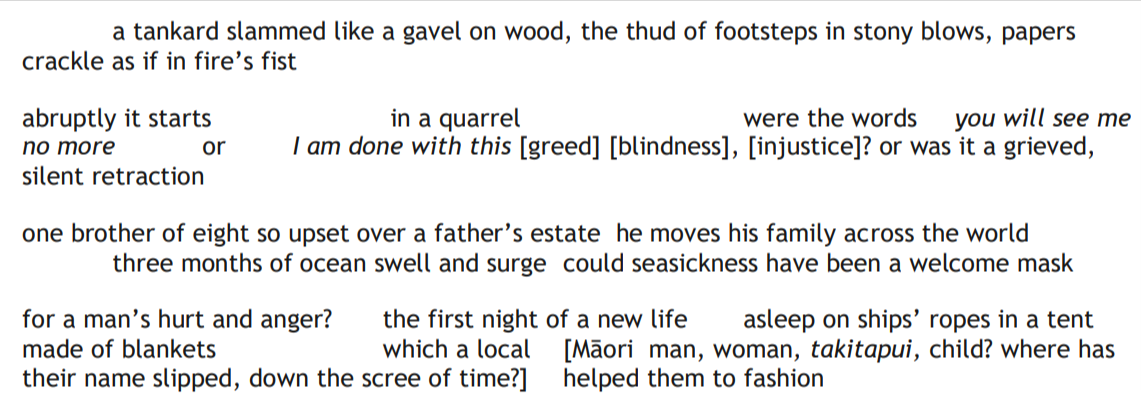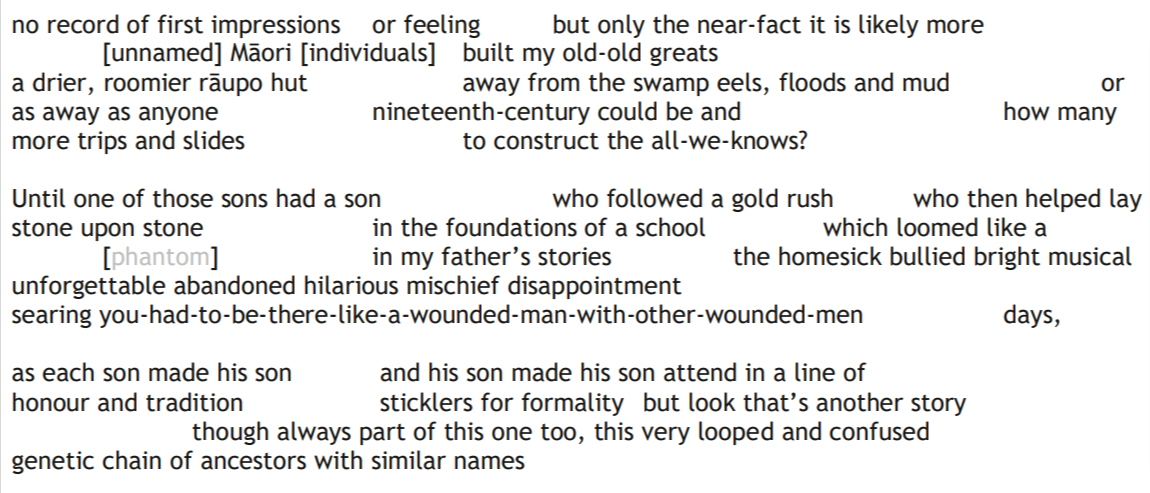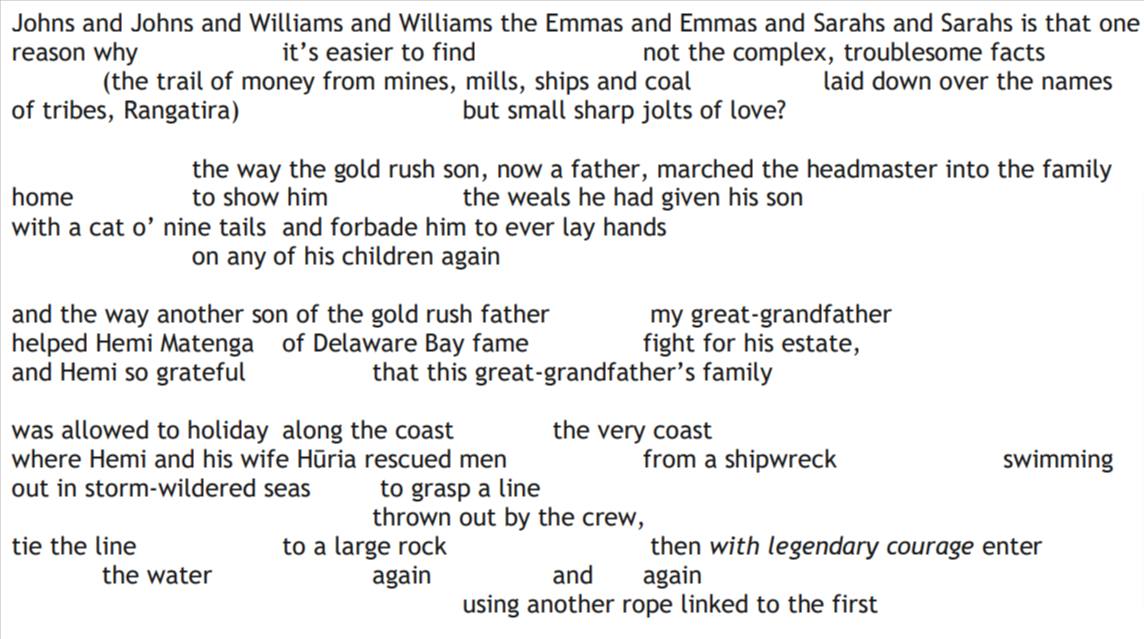Fantastic rugged imagery, metal and manacles, capturing essences of both masculinity and heart.
It showed vulnerability, It was beautiful, spare, imagist. It was a reflection of men’s suppressed emotions. It was powerful, poignant, moving, beautiful to read aloud. For these reasons and many many more, voters chose ‘Sometimes, a Man Could Cry’ by Matthew M.C. Smith as IS&T’s Pick of the Month for May.
And what a particularly diligent group of voters we had this month. Many noted the quality of all the poems; some wrote paragraphs about why they chose one poem over another. Others wrote movingly, sparingly about how these poem affected them personally. We don’t just publish the winning comments; we send a small selection to all the shortlist. Voters, your efforts are always appreciated.
Matthew M. C. Smith is a ‘Best of the Net’ and Pushcart prize-nominated Welsh poet from Swansea. He is the author of Origin: 21 Poems, The Keeper of Aeons and a pamphlet Paviland: Ice and Fire. Matthew is the editor of Black Bough Poetry. Twitter: @MatthewMCSmith Insta: @smithmattpoet Also on Facebook.
Matthew is running the London Marathon next year and fundraising for WellChild. His £20 ‘prize’ has been put towards this!
Sometimes, a Man Could Cry
Sometimes, I just hold my head,
clasping its wreck of metal. It is just enough
to keep the spine and chest upright,
just enough to wire the jaw into a fixed smile
and fuse and screw up bones; just enough
to keep up.
The world is shuttering, the world
is headlong, its magic sails
past a silver line. The nerves
needle, the soul ghosts itself.
Sometimes, manacled to the earth
not buckling his chains, a man could cry.
Voters comments included:
incredible imagery, beautiful to read aloud because of the word choices and so very poignant and moving
Super poignant. Such a strong portrayal of the vulnerability of men away from received ideas about strengthThis is a touching and evocative poem. I like how the poet depicts the suffering inherent in the effort to conform to the imposed role, and how the repetition of “just enough” evokes the desire to build a sort of levee against the overflow of emotions a man should suppress
I like the contrast between the sense of the stiff hard metal of wire and suppressed masculine emotions.
Striking, moving imagist poem!
The poet has artfully depicted the trials of man in a harsh Anthropocene, almost apocalyptic world. The sensitive threads of humanness bind with the concept of man’s isolation being likened to a machine. The result is a compelling image of a purely functional existence, devoid of warmth and true human connection. A moving piece which resonates with many in these trying times.
I love the imagery of the man just being held up but by metal, almost intruding upon his body. There’s a vulnerability here but it’s suggested that this is perhaps buried underneath. There’s only “just enough” to keep him upright and smiling. The final two lines suggest a hopelessness – he isn’t “buckling his chains”, his strength has now perhaps deserted him yet the question remains – “he could cry” but does he? So much to think about here – I love it!
An honest, spare, economical poem that says it all.
the tender braided with the way life is – it clutches at you, shakes you…
This poem gets my vote because the weight of the poem is immense.
Love the feeling it evokes of resilience despite overwhelm from the shuttering yet headlong world.
I like short, powerful, imagistic poems and this one fits the bill perfectly.
The subtlety and nuance of the images are layered beautifully in a way that highlights, rather than obscures, the central metaphor. It’s beautiful.
Captures the physicality, the ‘anchoring’ nature of the body and how grief and heightened emotions can both ground and tilt us.
Men crying is still pretty rare despite years of feminism and awareness of gender stereotypes.
Smith captures the feeling of carrying the weight of the world on one’s shoulders in an incredibly condensed and moving way. It evokes compassion and a sense of recognition without drifting into the vague and whiny.
“A Man Could Cry” gets my vote for the way it snatches bits (of what I think are probably universal fears in the night) of a life gone wrong and makes us want to cry. It is measured, unpretentious, and sticks in my wind afterward.
I was very moved. The speaker takes an emotional risk, and it works well, because so many men & boys were taught that men should not cry, which is unfair to them. The imagery is vivid and straightforward, well done. Powerful poem.
Great to have a poem that so cleanly and neatly tackles toxic masculinity
An image of acceptance of our fate
It actually made me cry. Powerful poem.
I love the pared back language of this poem, its taut imagery and coiled energy. This line in particular stays with me: “The world is shuttering, the world is headlong.”
These are wonderful poems but there is something so overwhelmingly powerful and sorrowful about Matthew’ poem that speaks to the desperate toll and burden of reductive masculinity, the metal wreck of man as machine machine man, the ghost soul – the ache of it so poignantly expressed. It’s really quite brilliant.
*********
THE REST OF THE MAY 2023 SHORTLIST
THE PARABLE OF THE IMMIGRANT
The mirror lies. You cannot touch the reflection you see. You smash the mirror, yet the reflection votes remain on your mind. In the parable of the immigrant, the hummingbird wanders into a car park & finds the side mirror of a disused lorry. It perches daily, pecking hard at its reflection, as if asking, how can I touch myself with this curved beak?
I ask this question too, in the bathroom mirror, toothbrush in hand, water sluicing down the porcelain basin, lover’s hands like ribbons around me. This patch of earth is mine too. I am a hummingbird. On lingering days, emblazoned by the wintry cold, hot water in the bathroom splashes warmth, elusive from cousins, once, twice removed, I ask the mirror what kind of body home is. You call some people home & they flinch.
Dami Ajayi, a psychiatrist, lives in Watford.
*
daily
it’s translation & catching yourself & navigating polite surprise & over-explaining & the judicious use of partner & when they do the same it’s wondering & a pause while you consider how shocked they’ll be if you say dyke & how shocked they’ll pretend to be if you say dyke & whether they’ll assume your language is their permission & it’s wishing some of your neighbours were family & knowing they probably are & the loneliness of not knowing & it’s getting it wrong & making your own assumptions & apologies & it’s the choice of how much to speak in each moment & how much to exist in each moment & when someone says something about the queers with just a touch too much emphasis on the it’s the decision about how to arrange your face & the decision about how to arrange your guts & the rage & the rage & it’s the give us this day our daily rage & forgive me sisters for this act of translation & forgive me sisters for this act of silence & forgive me body for this act of rage
Elizabeth Chadwick Pywell’s pamphlet, Breaking (Out) was published by Selcouth Station Press in 2022, and Unknown by Stairwell Press in 2021. She has featured in journals including Fourteen Poems, New Welsh Review, Spelt and Impossible Archetype, was longlisted for the Leeds Poetry Prize and Mslexia Women’s Poetry Competition, shortlisted for the Ironbridge Festival Prize, and in 2022 won the Northern Writers’ Debut Award for Poetry: Out-Spoken Press Programme.
*
Archive of a friend’s tenderness
For Luke
You made red velvet cupcakes to mark some minor victory of mine.
Without the egg and dairy, you compensated with sugar
and I think I’m still high off it now.
Though you find yourself too ill to practice that most important alchemy
– I haven’t forgotten how you held me on our living room floor
as years of pain made my face a folkmap of rivers.
I haven’t forgotten how you folded and watched over my t-shirt
and jeans, as a stream, too cold for skin to calculate overwhelms me.
I haven’t forgotten how all my medicines lead back to you.
Gregory Kearns is a poet who lives in Liverpool. He has won a Northern Writers Award as well as having been published by Bath Magg, English Heritage, and Poetry Business. He runs workplace training around neurodiversity for The Brain Charity and is a proud board member of The Writing Squad. You can find his website here.
*
Genealogy
In memory of June E. Neale’s work on the booklet Neale Family History, Nelson 1974.





Emma Neale is a New Zealand writer and editor. She has had six novels, six collections of poetry, and one collection of short fiction published. Her novel Billy Bird was long listed for the Dublin International Literary Award 2018. In 2020 she received the Lauris Edmond Memorial Award for a Distinguished Contribution to New Zealand Poetry.
*
Haiku Calendar
January, fear
Like a preacher, elsewhered, dubbed
To a moonbeam howl
February – wolf
Lopes across rock-snarled borders
Inhuman stone tongue
March – willow-wand faith
Unbridled, even tonight
As the mouse roars by
April – shameless jig
Lime-gartered, fecund, chirping
Her spiteful green song
May – fury’s glass tooth
Scattered centuries ago
Our glittered berg-smiles
June – sun-plectrummed, still
Although we’re harrowed by cold
Its hot, blunt splinter
July, mandrelling
Us to the year’s cursed navel
We crisp and curdle
August, our world spored
To false notes and noises off
These surrogate blues
September, gold-scraped
Out of barren mines, hold me
As I sieve, tremble
October – breathless
With freedom, its wired threshold
Then simply breathless
November, end-game
We are castled, heart-cuffed to
Winter’s bitter keep
December, frost-thighed
Shaving us down to grief’s bone
Its unthawed solace
Rachel Spence has published two pamphlets Furies (Templar 2016) and Call and Response (Emma Press 2020) one collection Bird of Sorrow (Templar 2018) and a prose poem, Venice Unclocked (Ivory Press 2022) with photographer Giacomo Cosua.
